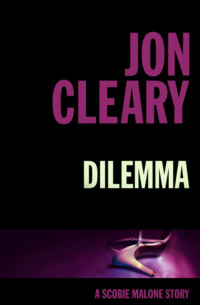
Полная версия
Dragons at the Party
‘When you retired from all that, who would remember you? Yesterday’s TV stars are like Olympic swimmers – nobody can remember them when they’ve dried off. You always wanted to be remembered, Phil – you love being loved by your public. You’ll be remembered as the most popular PM ever. That is, unless you stuff up this Timori business.’
‘You still haven’t told me what you’ve got there in Palucca.’ Norval looked genuinely stubborn and determined, something he had always had to pose at on camera.
Hickbed put his glasses back on: he was getting a new view of his puppet. He liked Norval as a man, as did everyone who met him: the TV star and the politician had always been more than just professionally popular. He had, however, never had any illusions about the PM’s political intelligence and, indeed, held it in contempt. It struck him now that Norval might have learned a thing or two since he had been in office.
‘I’ve got a twenty per cent interest in the oil leases off the north-east coast.’
‘Who has the eighty per cent?’
‘Who do you think? The company’s registered in Panama, with stand-in names for me and the Timoris. I’ve talked to them about it and there’s five per cent for you.’
Norval wanted to be honest, to be pure and uncorrupted; but he had been asking questions all his professional life. ‘How much is that worth?’
‘Several million a year, if we put the Timoris back in Bunda. Bugger-all right now, since the generals have confiscated everything. I’ve got nearly sixty million tied up there one way or another, the oil leases, construction, various other things. I’ll be buggered if I’m going to lose all that without a fight.’
‘How did you get in so deep?’
‘Who do you think’s been staking the Timoris since the Yank firms were warned to pull out by Washington? Delvina came to me – what could I say? You know what she’s like.’
‘Don’t we all,’ said a woman’s voice.
Hickbed turned as Norval’s wife came in the door. ‘Hello, Anita. Just got in?’
‘I’ve been visiting Jill and the grandchildren.’
There was no love lost, indeed none had ever been found, between Anita Norval and Russell Hickbed. When she had met Norval she had had her own radio programme on the ABC, the government-financed network, and when she had married him there were those on the ABC who thought she had married beneath her. She had truly loved him in those days, as had millions of other women; the other women might still be in love with him, she didn’t know or care, but she knew the state of her own heart. There had been a time when she had thought she could rescue him from the trap of his own self-image; then Russell Hickbed had come along, taken the image and enlarged it till even she was trapped in it. She would never forgive Hickbed for making her the Prime Minister’s wife.
‘Nobody would ever take you for a grandmother. Neither of you.’
‘Thanks,’ said Norval drily.
He had stood up beside Anita; she knew they made a good-looking pair. He handsome and blond, she beautiful and dark, both of them slim, both of them expensively and elegantly dressed even on this warm holiday night: the image now, she thought, had become a round-the-clock thing. They had a daughter who had married early and a son who worked in a merchant bank in London: both of them had escaped the image and refused to be any part of it.
‘What’s happening with the Timoris?’ she said.
Norval chose a problem that had not yet been discussed this evening. ‘We have to find them somewhere else to stay. We’re supposed to move into Kirribilli House on Monday.’
‘You should never have put them there in the first place.’ She didn’t want to crawl into a bed where Delvina Timori had slept; she had, unwittingly at the time, done that years ago.
‘It was all that was available. Everything else is full – hotels, apartments, houses. They would land on us when Sydney’s never been more chock-a-block.’
‘Why can’t we move them in here?’ said Hickbed.
‘No!’ Anita almost shouted.
‘I don’t think that would be a good idea, Russ,’ said Norval, not wanting another problem, closer to home.
Anita recovered, said sweetly, ‘What about your place, Russell? You’d have room for them in that barn of yours.’
‘A good idea!’ Norval was almost too quick to support her.
Hickbed shook his head. ‘What about security? It’d be too risky.’
That could be fixed,’ said Norval. ‘I’ll get the Federals to double their detail. It’s the solution, Russ, I don’t know why we didn’t think of it before –’
‘It’s no solution. It’ll just be a bloody great headache.’
Then Dave Lucas, one of the PM’s political advisers, short and lugubrious-faced, a basset hound of a man, came to the door.
‘There’s just been a news-flash on TV. The Dutchman’s put out an announcement that it was that guy Seville who tried to murder Timori.’
‘Shit!’ said Hickbed, who didn’t speak French.
‘Not on my carpet,’ said Anita Norval and left the room, all at once glad that everything was going wrong.
4
It took Miguel Seville some time to reach Dallas Pinjarri. The Aborigine, it seemed, moved around as much as the Argentinian: militant radicals were the new nomads. But at last he had Pinjarri on the phone, though the latter sounded suspicious and unwelcoming. ‘Who’s this?’
Seville knew better than to identify himself: none knew better than he that yesterday’s ally was often today’s betrayer. ‘A friend in Libya gave me your name.’
‘What friend?’
Seville named a man in the Gaddafi camp, the contact who had sent him to Australia two years ago.
‘You still haven’t said who you are.’
‘My name is Gideon, I’m from Switzerland.’
‘Swiss? That’s a new one. I always thought you jokers just went in for watches and cheese and fucking law and order.’
‘Some of us have other ideas. Can we meet?’
There was silence at the other end of the line; Seville guessed a hand had been put over the mouthpiece. Then: ‘Okay. You know the Entertainment Centre? No? Well, get a taxi, the driver will take you there. Eight o’clock. Wait in the lobby in front of Door Three. What do you look like?’
Seville described himself, having to close his eyes in the stuffy phone-box while he tried to remember his new looks. It was curious that he had never become accustomed to the sight of himself, when he looked in mirrors, in the various disguises he had to adopt.
‘Okay, but you better be fair dinkum, mate. You’re not fooling around with a tribe of fucking amateurs.’
Seville smiled to himself: Pinjarri hadn’t changed. ‘I’m sure I’m not.’
That evening Seville caught a taxi into the city, but, having looked up the Entertainment Centre in a directory he had bought, had the taxi drop him some distance from the Centre and walked the rest of the way. He took off his jacket and carried it over his arm: even the Swiss were known to relax occasionally.
He passed a gun shop on the way, but didn’t pause. He had gone looking for such a store when the city had closed for Saturday afternoon; he had found two, including this one, but his practised eye had told him they were too well secured to be broken into. It was then that he had at last decided he had to risk contacting Pinjarri.
On the last part of his walk he was drawn towards the Entertainment Centre by the crowd heading there. He went down past Chinese restaurants and shops; a dragon with illuminated red eyes stared at him from a window and in the doorway beside it a Chinese girl smiled invitingly. Then the Centre loomed over him, an auditorium that looked like a dozen others he had seen in other parts of the world. An ideal place for a bomb scare, he remarked automatically. Just like all the others.
The crowd was pouring into the big building. All of them young, some of them bizarre in their dress; he stood out amongst them as if he were in fancy dress. Tonight was the first night of the Australian Pop Festival: the stars of the show were Dire Straits, direct from their American tour. Affronted nationalism hadn’t kept the hordes away; they poured into the wide lobby as if the First Fleeters had come back to play the Top Ten of 1788. Seville took no notice of the irony: he was the true internationalist in the crowded lobby, the terrorist without patriotism.
He had been standing below the steps leading to Door 3 less than five minutes when he felt the tap on his elbow. ‘Mr Gideon?’
The Aboriginal boy could not have been more than fifteen or sixteen; he was light-skinned and he reminded Seville of the Arab boys he had seen in the guerrilla training camps in the Bekaa valley in Lebanon. He looked just as serious and apprehensive as those boys.
‘Yes, I’m Gideon. Am I supposed to follow you?’ The boy looked surprised and Seville smiled. ‘I’ve done this before. Many times.’
They pushed their way through the crowd, going against the stream. I may be in dire straits myself before the night is out, thought Seville wrily; but danger was an old ambience and he never felt uncomfortable in it. He followed the boy out into the busy street and they turned left. Five minutes’ more walking brought them under what Seville took to be a traffic fly-over. There the boy, without a word, suddenly darted away.
Seville moved into the shadow of a pylon, stood waiting. He flexed the calf of his right leg, felt the knife in its sheath strapped there. If Dallas Pinjarri brought trouble, he would be ready for it.
Above his head he could hear the swish of tyres and the occasional rumble of a heavy truck. Through the pylons he could see the bright lights of the Darling Harbour complex, a new development since he had last been in Sydney. All cities, he decided, were beginning to look alike with their tourist projects; you travelled thousands of miles to look at buildings and display temples just like those you had left behind. In a thousand years, digging amongst the ruins, archaeologists would wonder in which country they were working.
Pinjarri appeared as silently and swiftly as the Aboriginal boy had disappeared: maybe it is an Aboriginal thing, Seville thought. He came through the bands of light and shadow; Seville thought he saw other shadows within the shadows, but he could not be sure. He waited, wondering if he would have to use the knife.
‘Mr Gideon?’
‘Hello, Dallas. Have you brought some friends with you, back there behind those pylons?’
Pinjarri peered at him in the shadows. ‘I don’t recognize –’
‘I had another name when I was here two years ago.’ He could not remember whether he had used his own name; his memory must be going. ‘I also wasn’t blond or Swiss –’
Pinjarri peered even closer. Then: ‘Shit, is it really you? Miguel?’
‘I might be,’ said Seville, smiling. ‘But call me Michel. I told you, I’m Swiss.’
‘Sure, sure, whatever you say.’ Pinjarri was a good-looking man in his late twenties with black curly hair and a complexion only slightly darker than an Arab’s: a white man had stayed some time, maybe only for a night, in the family bed. He had a broken nose, a relic of a year as a professional boxer, and the sad dark eyes of a born loser. Yet he could still smile and it was a pleasant one. ‘Sometimes I wish I could be something else. I’m a half-caste, half-educated, half fucking everything.’
Pinjarri hadn’t been self-pitying when Seville had last been here; things must be going badly for the black militant movement. ‘You wouldn’t feel at home with the Swiss. No one ever does. Perhaps that’s a better defence than an army.’ Then he said, ‘I need a gun.’
Pinjarri made a clucking noise. ‘I always thought you’d have everything on hand. You said we were the fucking amateurs when you were here last time –’ So he hadn’t forgotten. ‘You told us what a lot of shits we were –’
Seville was fluent in six languages and foul-mouthed in none of them; the obscenities grated on his ear. He was unconvinced that violent language achieved anything, except perhaps to help the speaker’s own macho image. In the mouths of women it struck him as just ugly comedy. He was a prude in many ways, except in the matter of killing.
‘I need a gun,’ he repeated quietly. ‘As soon as possible.’
Pinjarri stopped his abuse, looked at him curiously. ‘You gunna kill someone? Or ain’t I supposed to ask? Okay, forget I asked. What sorta gun? A Schmeisser, something like that? They’re not easy to get –’
Seville doubted if Pinjarri had ever seen a Schmeisser: he was just airing his knowledge of the catalogues. ‘I want a high-powered rifle, one with a telescopic sight. A Springfield or a Winchester or a Garand. What do your kangaroo-shooters use? I’ve seen them on television in those animal welfare propaganda films.’ He could never understand why people should be so concerned with the slaughter of animals. ‘I need something reliable and I need it at once.’
‘I been ’roo-shooting meself. I used a Sako .270, it’s a Finnish job–’
‘I know it.’
‘How soon do you want it?’
‘Tomorrow at noon?’
‘Shit, I dunno … It’ll cost you.’
‘How much?’ He knew the price of a Sako: he had seen one in the window of one of the gun shops he had inspected: $800.
Pinjarri hesitated, then said almost pugnaciously, ‘Five thousand bucks.’
That’s a lot for a gun. I don’t want to buy a battery of them.’
‘Look, Mick, you know it ain’t just for the gun. Our movement’s in a fucking bad way – we need money any way we can make it …’
Seville smiled to himself. He thought of the money that was available to the PLO and the IRA. He had been in Beirut in 1982 when the Israelis had moved up into Lebanon; Rah Zaid, who knew of such things, had told him the PLO in four days had moved $400 million out of Lebanese banks into Switzerland. He felt tempted to bargain with Pinjarri, but the joke was too sour.
‘Five thousand,’ he agreed. ‘But only if you deliver it by tomorrow noon and not a word to anyone whom it’s intended for. Otherwise …’
‘Otherwise what?’ Pinjarri grinned. ‘You wouldn’t kill me, mate. I’m not worth anything.’
‘So you wouldn’t be missed.’
The grin faded. ‘Okay, how will I get in touch with you?’
‘I’ll phone you at eleven. Dismantle the gun, bring it in some sort of bag. And a box of ammunition.’
‘I’m not a fucking nong,’ said Pinjarri, trying to sound like a professional. But what had he ever done? Seville asked himself the question and imagined Pinjarri asking it, too. A few demonstrations, the blowing up of a power-line pylon erected on an Aboriginal sacred site … It was difficult to be militant in a country that ignored you. ‘You’ll have it, no worries, mate.’
Конец ознакомительного фрагмента.
Текст предоставлен ООО «ЛитРес».
Прочитайте эту книгу целиком, купив полную легальную версию на ЛитРес.
Безопасно оплатить книгу можно банковской картой Visa, MasterCard, Maestro, со счета мобильного телефона, с платежного терминала, в салоне МТС или Связной, через PayPal, WebMoney, Яндекс.Деньги, QIWI Кошелек, бонусными картами или другим удобным Вам способом.











